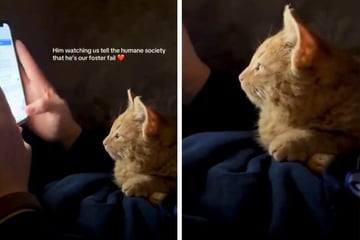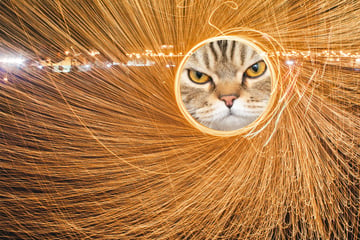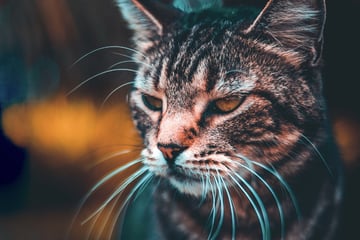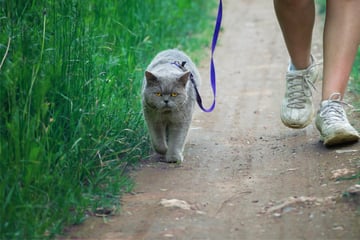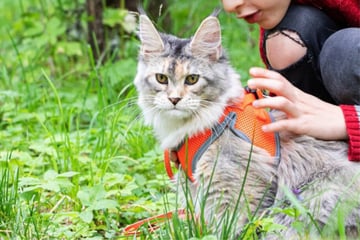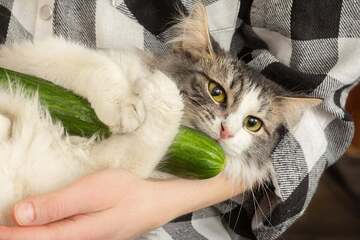Can cats eat dairy? A guide to feline lactose intolerance
Cats love all things dairy. They're crazy about cheese, they're fans of yogurt, and they love to lap at a nice bowl of milk – but are these products actually good for them? What dairy can cats eat, and what will make them sick?
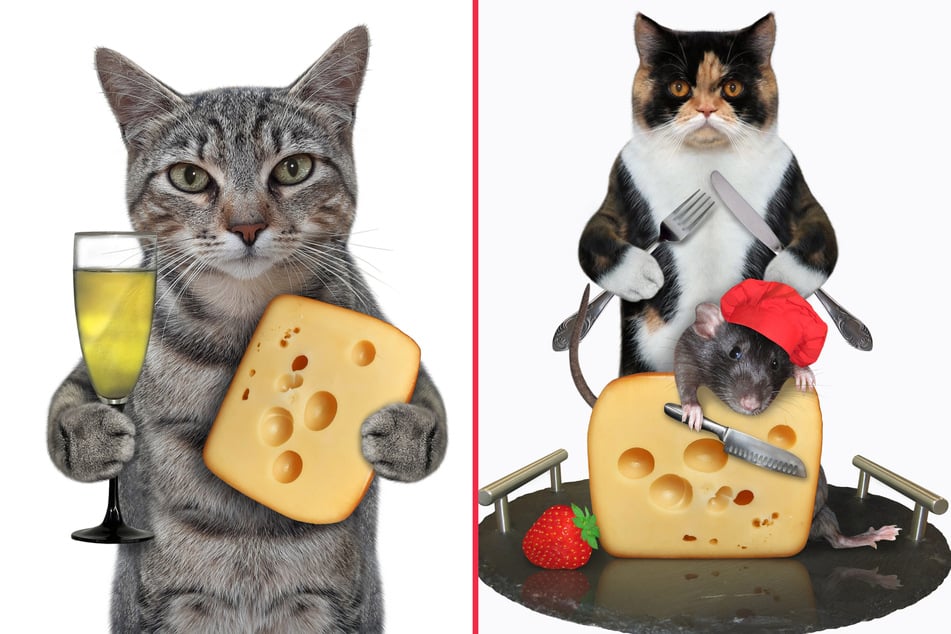
There are few things more guaranteed to attract a cat than a big bowl of milk. But what your fluffy friend wants is not always all that good for it.
Like many other dairy products, milk is likely to make your cat gassy and ultimately unhappy. But what about cheese, yogurt, and chocolate?
TAG24's cat guide is here to tackle these and other questions.
Are cats lactose intolerant, what if any dairy products can they eat, and what should you avoid as a cat owner?
Read on to find out!
Can cats have dairy?
A little bit of dairy here and there won't do your cat any harm, but they should not have too much of it. You see, our fluffy friends are lactose intolerant and won't respond kindly to excessive amounts of cheese, milk, and the like. It causes digestive problems, diarrhea, and all sorts of other unpleasant symptoms.
Basically, lactose intolerance is when the body doesn't contain the lactase enzyme, making it almost impossible for them to break down the lactose that many dairy products contain. While a bite of cheese or a lick of milk here and there won't do much damage, excessive dairy consumption can lead to severe long and short term symptoms in cats.
As a result, it's okay to give your cat a little dairy every now and again, but they should not be fed the stuff on a regular basis. When you feed your cat dairy, it should also be given in very small quantities.
One more reason to avoid dairy: Putting lactose intolerance aside, dairy also just simply doesn't contain the necessary vitamins and nutrients that a truly healthy cat diet requires. It's not good for them, and can even cause quite severe weight gain.
Can cats eat chocolate?
Everyone knows that dogs can't eat chocolate because it will poison them, but what about cats? In much the same way as in dogs, cats are highly allergic to both caffeine and theobromine, which are both found in chocolate. As a result, under no circumstances should you ever allow your cat to eat chocolate - it can be fatal!
Can cats have yogurt?
Cats absolutely adore yogurt and, as long as it's low fat and provided in small quantities, it's actually quite good for your kitty. This is because the process of making yogurt has destroyed all the lactose sugars in the milk, making it completely free of the nasty stuff that'll give your kitty the runs. In addition, yogurt is often packed full of probiotics that are great for your cat's health.
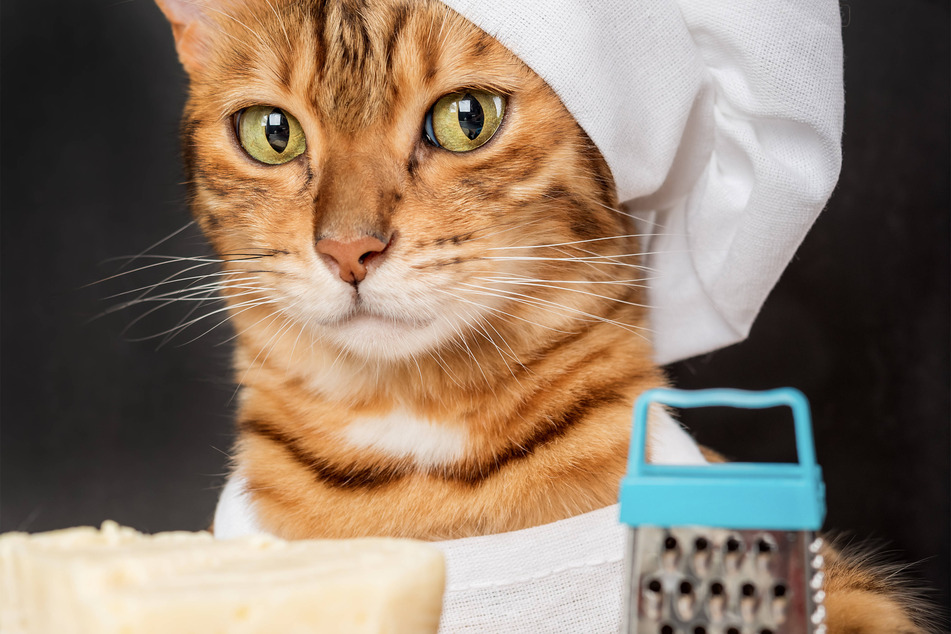
Can cats eat cheese?
While cheese is not toxic, it does contain a lot of lactose and, as a result, shouldn't be given to cats. If you feed your cat too much cheese, it will likely have to suffer through diarrhea, vomiting, and a general sick feel for quite a while.
Why do cats like cheese, milk, and all dairy?
It can seem rather weird that cats get so into cheese, milk, and other dairy products, despite them being so bad for their health. After all, if something was going to make you sick, wouldn't you avoid it like the plague? If something made you feel really nasty, wouldn't you want to steer clear?
Cats love dairy products like milk, cheese, and yogurt, because they can smell the fats and proteins that it contains. Since that's what a cat's preferred diet consists of, their smell makes these ingredients incredibly attractive and desirable.
On top of that, cats drink their mother's milk at birth, so are used to consuming the stuff. They don't necessarily understand that the milk they're drinking comes from a cow, not their mother, nor do they understand that they really don't need to be drinking it right now anyway.
Ultimately, a cat's love of dairy can be narrowed down to a few things: The smell and attraction that comes from the fats and proteins in the milk, and the propensity mammals have for milk in general. It really is that simple!
Are all cats lactose intolerant?
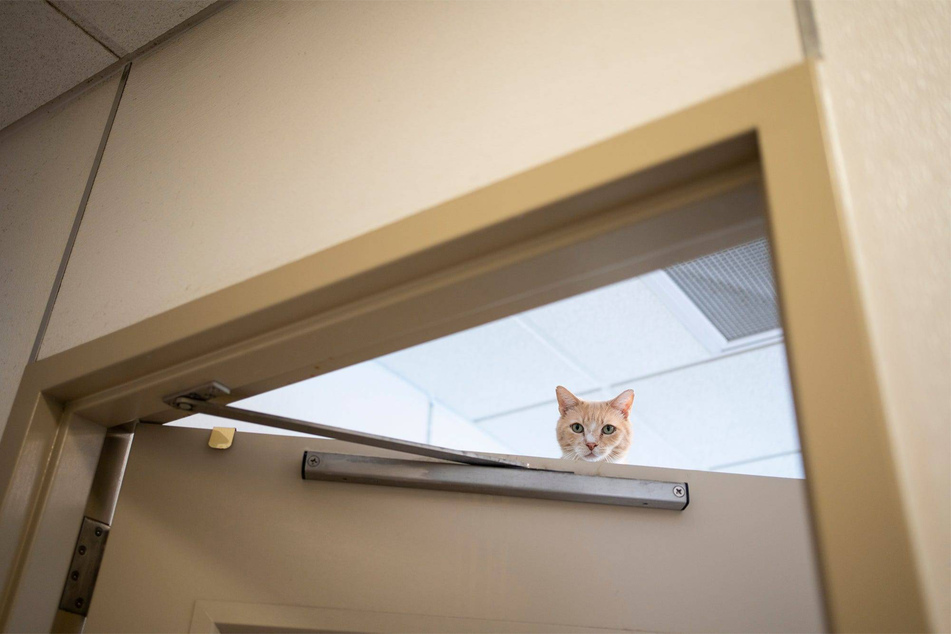
Not every cat is lactose intolerant, but the vast majority of them are. The safe assumption is that your cat will respond badly to lactose if they consume it in large quantities, or too regularly. As a result, dairy should simply be kept away from cats as much as humanly possible.
It's true that some of our kitties may find that they can drink as much milk as they like without any side effects, but they still shouldn't do so. As we explained earlier, even if a cat isn't lactose intolerant, it's still not meant to be consuming dairy.
If your kitty starts consuming tons of cheese and milk all the time, it will gain an absolute ton of weight. On top of that, consumption of such food will limit your cat's appetite for proper food and, as a result, it won't get all the nutrients and vitamins that it needs.
Keep cats away from dairy as much as possible, whether they're lactose intolerant or not.
Cats shouldn't be given too much of any dairy, even yogurt
Our feline friends have very specific diets that need to be carefully calibrated and kept as strict as possible. While it's okay to let your cat lap up the entrails of your yogurt in the morning, cleaning off and shining up the bowl, it's not okay to make a habit of feeding your cat dairy products.
Your kitty will appreciate a treat every now and again, and there are few treats they'll enjoy more than a little bit of dairy. Cats go wild for cheese and yogurt, so feel free to give them a little tiny taste every now and again. Just keep it rare - if you overfeed your cat dairy, it could get sick and put on a lot of weight.
Cats have such sensitive stomachs and such strict dietary needs, they can't even get by on dog food, let alone dairy milk or cheese. Keep the cream to yourself, folks, and keep your cat happy and healthy while doing so!
Cover photo: Collage: IMAGO/agefotostock
